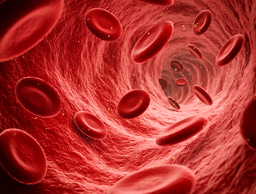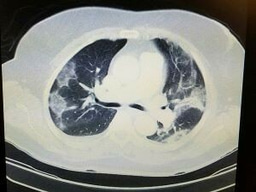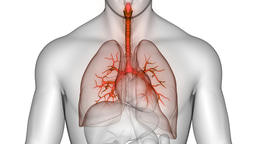Call for papers: Adult congenital heart disease
Published in Healthcare & Nursing and General & Internal Medicine

BMC Cardiovascular Disorders is calling for submissions to our Collection on Adult congenital heart disease (ACHD). Millions of people are living with ACHD as more children with congenital heart disease reach adulthood. ACHD encompasses a wide range of structural and functional heart abnormalities, including blood vessel (e.g. aortic coarctation, aortic and pulmonary artery stenosis, patent ductus arteriosus, transposition of the great arteries and anomalous pulmonary venous return), heart valve (e.g. bicuspid aortic valve disease, Ebstein’s anomaly and mitral valve prolapse), and septal defects (e.g. atrial septal defect, patent foramen ovale and ventricular septal defect), that develop before birth but are not diagnosed until adulthood.
In support of SDG 3: Good Health & Wellbeing, BMC Cardiovascular Disorders is launching a new Collection on Adult congenital heart disease to bring together basic and clinical research to develop our understanding of ACHD and improve the care and outcomes for patients living with this condition. We welcome submissions on topics such as:
• Advances in diagnosis and imaging
• Long-term outcomes and quality of life
• Management of arrhythmias and heart failure
• Innovative treatments and surgical techniques
Living with ACHD can present significant challenges for patients, including the need for lifelong monitoring, multiple surgeries, and a higher risk of heart failure as well as other cardiovascular complications. We hope this Collection can serve as a platform for researchers to showcase the latest advances in the epidemiology, pathophysiology, diagnosis, and treatment of ACHD.
Meet the Guest Editors
Niraj Nirmal Pandey: All India Institute of Medical Sciences, IndiaDr Niraj Nirmal Pandey is a physician researcher in the field of cardiovascular and interventional radiology and currently works as Assistant Professor of Cardiac Radiology at the All India Institute of Medical Sciences, New Delhi, India. His work focuses on imaging in congenital heart diseases and coronary heart disease as well as on novel intra-arterial embolization/recanalization therapies. He holds an MD (Radiodiagnosis) from the University of Delhi and a postdoctoral (DM) degree in Cardiovascular Radiology and Endovascular Interventions from AIIMS, New Delhi. He has over 225 publications including multiple CT-angiography based prevalence studies in congenital heart diseases and descriptions of hitherto undescribed anatomical variations/anomalies of the cardiovascular system. He currently works on the utilization of virtual dissection techniques in clarifying the anatomy of the malformed heart.
Elaheh Malakan Rad: Tehran University of Medical Sciences, Iran
Dr Elaheh Malakan Rad, MD, FACC, is a senior professor of pediatric interventional cardiology at Children's Medical Center, Tehran University of Medical Sciences. She is a Senior Editorial Board Member of BMC Cardiovascular Disorders, a member of the Iranian National Board of Examiners of Pediatric Cardiology and Medical Education, and a GBD collaborator. With over 25 years of academic experience, her expertise in pediatric cardiology includes teaching, research, and patient care. She has over 80 published papers in peer-reviewed journals and holds two joint provisional patents in the US Patent Office for transcatheter devices in congenital heart disease interventions.
Christoph Sinning: University Heart & Vascular Center Hamburg, Germany
Dr Christoph Sinning is senior physician at the Department of Cardiology at the University Heart & Vascular Center Hamburg, Germany. His main areas of work are cardiovascular imaging with a focus on echocardiography, treatment of adults with congenital heart disease, and cardiac devices like pacemakers and ICDs. His current scientific work is focusing on the use of echocardiography in detecting the outcome of patients undergoing EP procedures and improving detection of candidates for cardiac resynchronization therapy. Another area of focus for his scientific work is the outcome of advanced heart failure in adults with congenital heart disease.
Submission Guidelines
This Collection welcomes submission of original Research Articles. Should you wish to submit a different article type, please read our submission guidelines to confirm that type is accepted by the journal. Articles for this Collection should be submitted via our submission system, Snapp. During the submission process you will be asked whether you are submitting to a Collection, please select "Adult congenital heart disease" from the dropdown menu.
Articles will undergo the journal’s standard peer-review process and are subject to all of the journal’s standard policies. Articles will be added to the Collection as they are published.
The Guest Editors have no competing interests with the submissions which they handle through the peer review process. The peer review of any submissions for which the Guest Editors have competing interests is handled by another Editorial Board Member who has no competing interests.
Submission Status: Open | Submission Deadline: 24 April 2024
Follow the Topic
-
BMC Cardiovascular Disorders

This journal is an open access, peer-reviewed journal that considers articles on the characterization, prevention, diagnosis and treatment of disorders of the heart and circulatory system.
Related Collections
With Collections, you can get published faster and increase your visibility.
Pediatric cardiovascular disease
BMC Cardiovascular Disorders is calling for submissions to our Collection focusing on Pediatric cardiovascular disease, which encompasses a wide array of conditions affecting the heart and blood vessels in children, ranging from congenital heart defects to acquired heart diseases. With advancements in diagnostic techniques and treatment options, there has been a significant evolution in our understanding of these conditions. This Collection aims to gather research that addresses the complexities of pediatric cardiovascular disease. By focusing on this critical area, we aim to highlight the unique challenges and opportunities in the prevention and management of heart disease in infants, children, and adolescents.
Advancements in pediatric cardiology have led to improved outcomes for children with heart disease, particularly through early detection and intervention strategies. The development of minimally invasive surgical techniques and advanced imaging modalities has transformed treatment paradigms, allowing for better management of congenital and acquired conditions. Additionally, growing awareness of the importance of cardiovascular health during childhood has prompted initiatives aimed at prevention, education, and research. Continued investigation into the genetic, environmental, and lifestyle factors influencing pediatric cardiovascular disease is vital for enhancing care and outcomes for affected children.
Topics of interest for this Collection include but are not limited to:
- Epidemiology of pediatric cardiovascular disease
- Advances in treatment for congenital heart defects
- Impact of lifestyle factors on children's heart health
- Long-term outcomes for pediatric heart disease patients
This Collection supports and amplifies research related to SDG 3: Good Health and Well Being.
Publishing Model: Open Access
Deadline: Jul 08, 2026
Mitochondrial dysfunction in cardiovascular disease
BMC Cardiovascular Disorders is calling for submissions to our Collection on Mitochondrial dysfunction in cardiovascular disease. Mitochondrial dysfunction has emerged as a critical factor in the pathogenesis of cardiovascular diseases, including heart disease. These organelles are integral to energy production, cellular metabolism, and the regulation of reactive oxygen species. Disturbances in mitochondrial function can lead to impaired ATP synthesis, increased oxidative stress, and ultimately contribute to the development and progression of cardiovascular conditions. Understanding the intricate relationship between mitochondrial health and cardiovascular disease is essential for developing targeted therapeutic strategies.
Recent advancements have highlighted the role of genetically inherited mitochondrial mutations in conditions such as maternally inherited essential hypertension and coronary heart disease. Future studies may elucidate the specific pathways linking mitochondrial dysfunction to cardiovascular disease, paving the way for the development of targeted interventions. Innovations in gene therapy and mitochondrial-targeted antioxidants could revolutionize treatment approaches, enhancing not only the management of existing cardiovascular diseases but also offering preventive strategies for at-risk populations.
•Topics of interest include but are not limited to:
•Role of mitochondria in heart disease
•Mitochondrial dysfunction and oxidative phosphorylation
•Genetically inherited mitochondrial mutations in cardiovascular disease
•Impact of reactive oxygen species on cardiovascular health
•Mitochondrial metabolism and ATP production in heart function
This Collection supports and amplifies research related to SDG 3: Good Health and Well Being.
Publishing Model: Open Access
Deadline: Apr 30, 2026





Please sign in or register for FREE
If you are a registered user on Research Communities by Springer Nature, please sign in